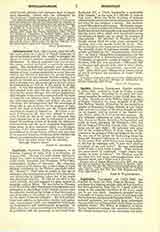

Infralapsarians (Lat., infra lapsum, after the fall), the name given to a party of Dutch Calvinists in the seventeenth century, who sought to mitigate the rigor of Calvin’s doctrine concerning absolute predestination. As already explained (see Calvinism), the system evolved by Calvin is essentially supralapsarian. The fundamental principle once admitted, that all events in this world proceed from the eternal decrees of God, it seems impossible to avoid the conclusion that the fall of man was not merely foreseen and permitted, as the Catholic doctrine teaches, but positively decreed, as a necessary means to the Divine end in creating man, the manifestation of God‘s power in condemning, as well as of His mercy in saving, souls. It was this corollary of Calvinism, viz., that God created some men for the express purpose of showing His power through their eternal damnation, that brought on the troubles associated with the name of Arminius (see Arminianism). In their controversies with opponents, within and without the pale of Calvinism, the Infralapsarians had the advantage of being able to use, or abuse, for the purpose of argument, the texts of Scripture and the Fathers which establish the dogma of original sin. But since, to remain Calvinists at all, they were obliged to retain, even if they did not insist upon, the principle that God‘s decrees can in no wise be influenced or conditioned by anything outside of Himself, the difference between them and the more outspoken Supralapsarians seems to have consisted simply in a divergent phrasing of the same mystery. To the soul which is foreordained to eternal misery without any prevision of its personal demerits, it matters little whether the decree of condemnation date from all eternity or “Five thousand years ‘fore its creation, Through Adam‘s cause.”
JAMES F. LOUGHLIN

